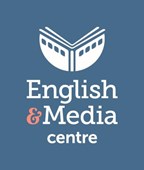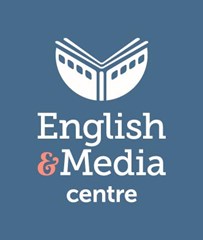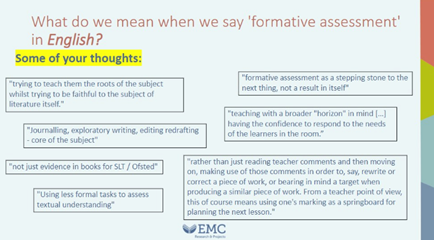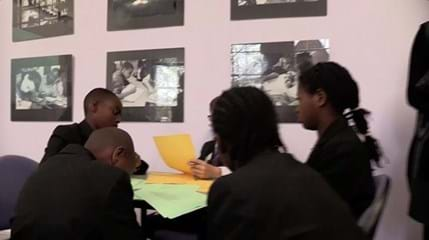In secondary schools, subjects often work in silos. Departments have limited enough time for their own planning, let alone spare capacity to meet with other subject areas to explore areas of similar concern and interest. What makes English different from Science or PE or History? Are there points of connection that might help both sets of teachers in their reflections on pedagogy and curriculum, or in their discussions with SLT about what makes subject disciplines distinctive and special? What shared practices and underlying principles mean that some subjects need to be treated differently in terms of whole school thinking about teaching and learning?
Even at the level of the work of subject associations, initial teacher education and research, there doesn’t seem to be very much close, comparative, cross-curricular conversation. This, in our view, has allowed broad, sweeping, generic ideas about knowledge, skills and pedagogy to move in unquestioned, with assumptions made about what unites subject disciplines and little granular thinking about how Humanities subjects, for instance, might differ from Science or Maths, or from each other.
So, it was very exciting when an extended online conversation on Bluesky was sparked off between me and Alex Ford, a History specialist, and then joined by Dan Lyndon-Cohen, History teacher and Director of the Schools History Project, and Bob Eaglestone, Professor of English Literature at RHUL. This then stretched into Direct Messages and emails, a Zoom call between Alex, Bob and me, and a face-to-face meeting between Dan and me to discuss issues of common interest. We exchanged ideas on many current concerns in our two subject communities about the way prevailing ideas about pedagogy and curriculum are distorting our subjects, discovering that there were many aspects that relate equally strongly to both English and History.
Below is a brief set of notes, written jointly by me, Alex and Dan, mapping the kinds of topics we covered.
1. Mastery and a mastery curriculum – is this a helpful way of thinking about our subjects?
Mastery assumes that one can teach components of knowledge in sequential ways, ensuring that all students have mastered one concept or item of knowledge before moving on to the next. It focuses on items of knowledge to be taught, mastered and tested. We agreed that in both English and History, this way of thinking about learning isn’t helpful. Students are often learning multiple components of knowledge and practice interwoven and cannot be said to have ‘mastered’ one before moving on.
In English, for instance, one can never be said to have ‘mastered’ metaphor. An understanding of metaphor and how it operates in literary texts, and wider texts in the world, is a cumulative, slowly developing kind of knowledge that goes way beyond knowing the word and its dictionary definition. One develops an increasingly sophisticated and insightful appreciation of metaphor through multiple encounters in texts, and through seeing it in relation to all kinds of other linguistic and literary choices.
In History students will need to build an understanding of what it means to explore change and continuity, or cause and consequence through repeated encounters with different historical periods. Historians themselves don’t agree on a single method for historical study so it is unlikely that a school child would be able to master the knowledge of the discipline. Even in substantive terms, students will need to encounter familiar concepts, in different contexts. Understanding what it means to be a peasant in the Middle Ages does not require a student to first study all prior peasant experiences. Indeed, attempts which have been made to outline all the necessary substantive concepts for pupils to master only serve to show that such a task is impossible. History touches on thousands of concepts for any given period. A study of Medieval England for instance would almost certainly involve ‘peasants’ but also concepts of autocracy, hierarchy, militarism, feudal dues, agrarian reform and so on. Yet even a slight change in the focus of a study will bring different concepts to the fore. The previously listed content is suitable when asking questions about rulers and reform but will reveal very little about village life, where concepts like the common, crop rotation, the manorial court, faith, and devotion might take centre stage.
2. Knowledge and skills – is it either possible, or useful, to separate these out and see them as distinct?
In both subjects, we see knowledge and skills as deeply interwoven. The educationalist Arthur Applebee talks of ‘knowledge-in-action’ and how students need to be helped to ‘enter…into our vital academic traditions of knowing and doing’. This involves developing skills of interpretation, judgement, recognising relevance and significance, weighing evidence and being able to distinguish what is valid from what is not, both in other people’s work and their own writing.
Of course, this is not skill free of content. At every stage, students are developing these subject disciplinary practices based on material and examples that become part of their broader knowledge base. We think that for both History and English, some of the attempts to swing the pendulum back from skills to knowledge have damaged subject learning as much as any swing there may have been the other way. Knowledge in our subjects includes learning the ‘know-how’ that will allow students to apply historical or literary thinking to any fresh content that appears on the curriculum and in their lives beyond school.
3. Memory and memorisation
The way that memory and memorisation have become disproportionately emphasised in discussions about learning in both subjects is a concern. Memorising names of characters or events in a novel, or quotations is not the solid, long-lasting furniture of subject learning. It’s a thin layer of veneer on the top that needs constant varnishing and touching up but is pointless if the furniture itself is rickety and poorly fashioned.
We need a renewed emphasis on ‘thinking’ in both History and English, teaching students to think hard about the material they encounter, to enable them to think like an historian or English student in all their future encounters with historical or literary material. This is the solid furniture of learning in the subject.
4. The importance of talk
Following from this, it is clear that exploratory talk in English and History classrooms is vital. In dialogue with each other and with their teachers, students can learn how to think in the subject discipline, internalising the ways of dealing with historical material and ideas, or literary texts and ideas, through frequent encounters and models of thinking in the classroom.
In English, the value of dialogic learning in classrooms has been proven in multiple pieces of research, including by Nystrand et al in the USA and a recent piece of research by Burgess, Taylor and Rawal looking at improved outcomes for students in English classrooms that gave time to students to talk to each other.
This is similarly true in History. A core aspect of the study of history is debate or argument. Although this can take place in a written form, Carroll’s research also suggests that pupils learn the form of written debate by participating in oral rehearsal Beyond this, oral traditions form an important aspect of the transmission of historical understanding. They also serve as a powerful tool for challenging dominant narratives as well as questioning the construction of history. The more we push oracy out of the classroom, the more we remove core aspects of the study of history. We also continue to marginalise voices that have been historically underserved.
6. Making Choices about Subject Content
In both subjects there are choices to be made about the content upon which to base this learning – whether that be historical periods and events, or literary texts. Choice is inevitable. Different schools can choose to focus on different content whilst allowing students to emerge with similarly valid understandings and future capabilities in relation to the subject. This differs from subjects like Science or Maths, where a common, agreed, national curriculum without choices is more likely.
For instance, in English, one could choose to read Blake but not Byron, any one of a number of YA novels, Romeo and Juliet rather than A Midsummer Night’s Dream, and so on.
Similarly, in History, a department might explore issues of causation or struggles for power by focusing on the British Civil Wars, or the Wars of the Roses, or the Indian War of Independence, or all three. The explanatory power of each choice depends on the curriculum surrounding it, the context of the school, and the experiences of the students. Curriculum choices do need an internal logic, but equally this needs to be open to scrutiny. Which stories do we tell with these choices and which do we fail to tell?
The choices of content that English and History teachers make can help develop a sense of inclusion and they impact on the extent to which students engage with, and buy into, the project of learning that subject. Local history, or historical themes that relate to students own lived histories and lives, can be exciting for them, in the same way that literary texts that reach into their own worlds can turn students onto reading and literary study. In neither case does this mean not teaching beyond their worlds. A rich mix allows for conversations across time, cultures and contexts that is enriching. Rudine Sims Bishop’s work on mirrors, windows and sliding doors in relation to text choices in English is equally applicable to History. Students need a mix of seeing themselves reflected in what they study, windows onto new worlds and sliding doors that take them from one into the other.
7. The Damaging Impact of KS3 Whole School Formative Assessment Processes and GCSE
Current approaches to assessment of both subjects have led to a narrowing of what is regarded as valid, developmental writing at KS3 – a shrinking of writing to what is finally taught in GCSE exams. Exploratory writing, writing in different genres of English or History and opportunities to experiment, take risks and be imaginative, bringing in one’s own personal insights and voice, have all been lost. Because of a lack of any non-examined assessment at GCSE, more extended writing tasks, researched and developed over time, have all but disappeared at KS3 too. Often this kind of extended work is where students make real progress with their writing – with opportunities to reshape and re-think first thoughts, re-drafting in the light of fresh thinking.
We think that formative assessment at KS3, in both English and History, could be more genuinely formative if it were more flexible, not always following a pattern of testing at the end of a unit, in the form of a mini-exam, based closely on GCSE. For instance, students could do oral presentations, could write in a range of genres and could be assessed in a more continuous way.
In EMC’s Assessment Research Project, where English departments moved away from the final end of unit ‘test’ towards a more on-going approach to assessment, there were substantial improvements: the teachers felt that the assessment was more genuinely formative, the range of writing and class work was much more varied, the work was viewed as more enjoyable, and the students worked harder throughout the unit than they had previously, when all they saw as important was the end of unit test.
More creative approaches to assessment in the history classroom can also help a wider range of students access the curriculum whilst deepening the historical skills they are developing. For example, a digital archive activity where students construct an online museum, can support students to navigate through dominant narratives and gain insight into the power structures contained within the archive, whilst learning how to collate and justify the selection of archival material.
Taking it Further
These are just some of the ideas that we shared. We would like to take these discussions further and welcome thoughts from teachers and other educational professionals about the ideas raised, and ways of furthering our joint thinking across these two major school disciplines.
Authors
Barbara Bleiman is an education consultant at EMC (previously co-Director). She is co-editor of emagazine,has written numerous resources for the classroom and is the author of What Matters in English Teaching, as well as being a writer of fiction and children’s poetry. She was formerly a Head of English at a sixth form college in Islington, and a member of the Senior Leadership Team.
Dan Lyndon-Cohen is the Director of the Schools History Project and Lead Practitioner for Humanities at Park View School in Tottenham. He is the author of a range of books on multicultural British history, and has been an education consultant for BBC Bitesize, National Portrait Gallery and the Imperial War Museum.
Alex Ford is a Fellow of the Schools History Project and PGCE History Lead at Leeds Trinity University. He is the author of a range of Key Stage 3 and GCSE textbooks and chapters and writes more widely about curriculum and assessment. He was formerly Head of History in two comprehensive schools in Yorkshire.





